trailer boat guides

Trailer boat guides are essential for safe and efficient watercraft handling. They ensure smooth maneuvering, protect your boat during transport, and enhance overall towing stability and security.
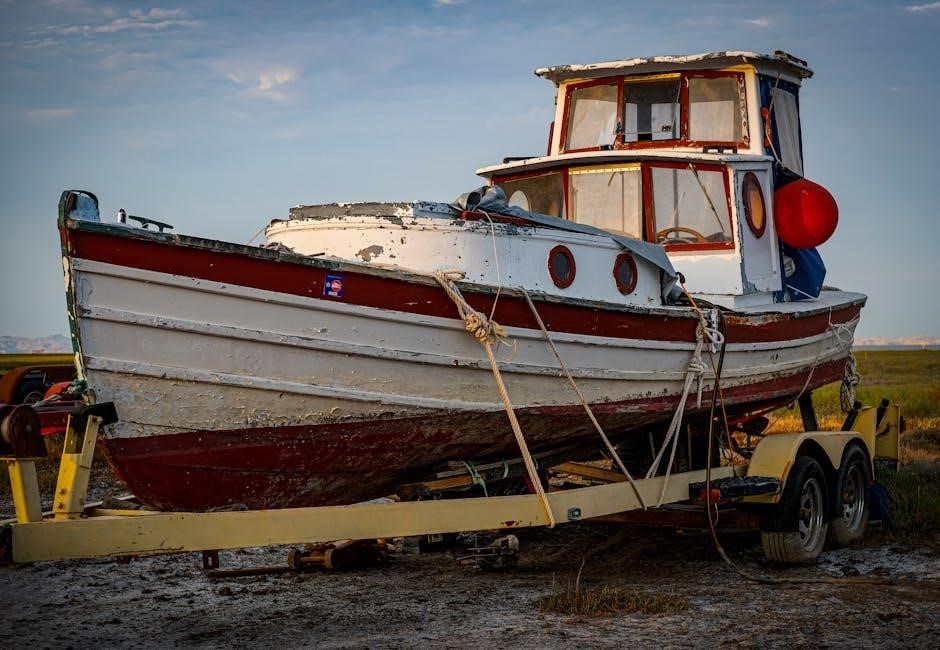
Types of Trailer Boats
Trailer boats vary by water type and purpose, including freshwater, saltwater, and specialty models designed for fishing, skiing, or recreational cruising, ensuring versatility for every boater.
Freshwater Trailer Boats
Freshwater trailer boats are designed for use in lakes, rivers, and inland waterways. They are typically lightweight, durable, and built to withstand calm or gentle currents. Popular types include aluminum fishing boats, pontoons, and small ski boats. These boats often feature shallow drafts, making them ideal for navigating shallow waters and accessing remote areas. Maintenance is relatively straightforward, with a focus on protecting the hull from corrosion and damage caused by aquatic life. Regular rinsing and storage in dry conditions help preserve their longevity and performance.
Saltwater Trailer Boats
Saltwater trailer boats are designed for coastal and offshore use, offering durability in harsh marine environments. Built with materials like fiberglass and stainless steel, they resist corrosion and withstand rough waters. Deep V-hulls and robust construction enable them to handle waves and salt spray. Regular maintenance is crucial, including rinsing and protective coatings to combat corrosion. These boats are ideal for fishing, cruising, and recreational activities in saltwater conditions, providing versatility and performance for enthusiasts exploring coastal areas.
Specialty Trailer Boats
Specialty trailer boats cater to specific needs, offering unique designs for niche activities. Fishing boats feature livewells and rod holders, while inflatable boats provide portability and versatility. Luxury boats emphasize comfort with amenities like cabins and seating. Sport boats are built for speed and agility, ideal for racing or water sports. Each type is tailored to enhance performance and enjoyment for particular enthusiasts, ensuring a perfect match for their recreational or professional pursuits on the water.
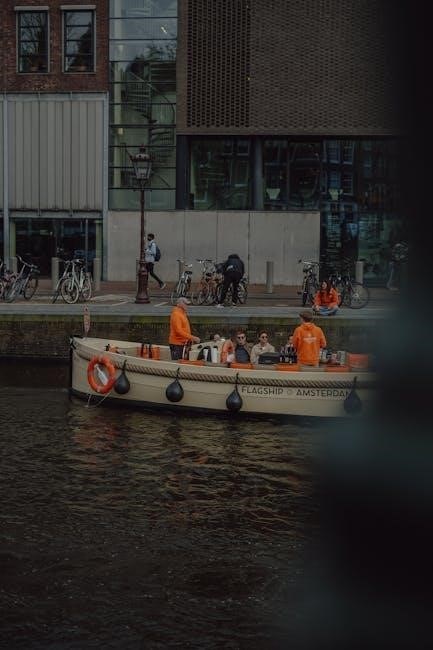
Maintenance and Upkeep
Regular inspections, protective coatings, and mechanical checks are vital for maintaining trailer boats. Proper tire and brake maintenance ensure safety and longevity.
Cleaning and Protective Coatings
Regular cleaning is crucial for maintaining your trailer boat’s condition. Use marine-grade cleaners to remove dirt, salt, and algae. Apply protective coatings like wax or ceramic sealants to shield the hull from UV damage and corrosion. These coatings also make future cleaning easier by repelling stains. For metal components, consider rust-inhibiting treatments. Consistent upkeep ensures your boat remains durable and visually appealing while protecting it from environmental stressors during both storage and use.
Lubrication and Mechanical Checks
Regular lubrication of moving parts, such as hinges and winches, ensures smooth operation and prevents rust. Check engine oil, coolant, and transmission fluids before and after use. Inspect belts and hoses for cracks or wear. Trailer wheel bearings should be lubricated annually, and brakes must be tested for proper function. Addressing mechanical issues early prevents costly repairs and ensures safe towing. Always follow the manufacturer’s recommendations for lubricants and maintenance schedules to keep your trailer boat in optimal condition.
Tire and Brake Maintenance
Proper tire and brake maintenance is critical for safe towing and trailer boat operation. Check tire pressure regularly, ensuring it matches the recommended levels for the load. Inspect tires for wear, cracks, or uneven tread. Brake systems should be tested before each trip to ensure functionality. Lubricate wheel bearings annually and replace worn brake pads. Always secure the trailer’s brakes when the boat is stationary. Regular inspections and timely repairs prevent accidents and ensure smooth transportation of your trailer boat.
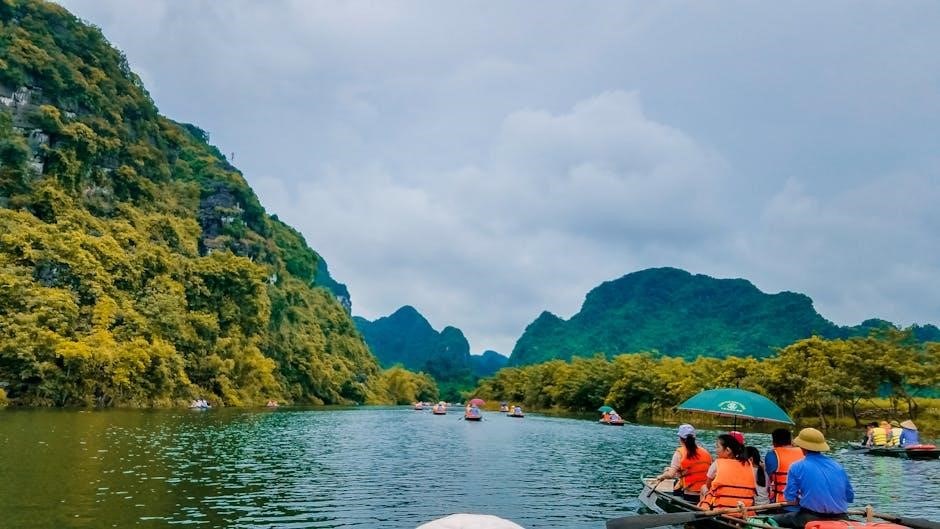
Safety Tips and Precautions
Safety tips and precautions are vital for trailer boat guides. Always check equipment before use, follow guidelines, stay alert, and ensure emergency preparedness for secure and enjoyable boating experiences.
Launching and Retrieving Techniques
Proper launching and retrieving techniques are crucial for safe trailer boat handling. Always inspect the trailer and boat before launch, ensuring correct alignment with the ramp. Use a checklist to secure the boat properly and avoid sudden movements. When retrieving, approach the trailer slowly and center the boat. Ensure all tie-downs are secure before towing. Regular practice improves efficiency and safety, minimizing risks of damage or accidents during these critical maneuvers. Always follow local guidelines and safety protocols for a smooth experience.
Emergency Preparedness
Emergency preparedness is vital for trailer boat safety. Always carry a first aid kit, emergency flares, and a reliable communication device. Ensure the boat has a fire extinguisher and a backup power source. Familiarize yourself with local emergency protocols and maintain a checklist for critical situations. Regular drills and safety briefings for passengers can prevent panic. Stay informed about weather conditions and potential hazards. Proper planning and quick response can significantly reduce risks and ensure a safer boating experience for everyone on board.
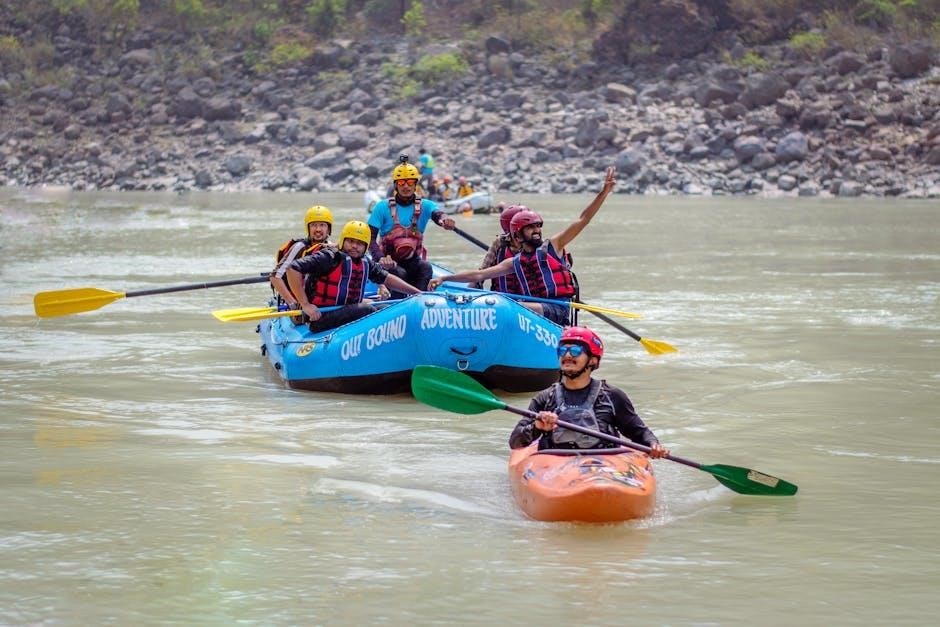
Legal Requirements
Adhering to state and federal laws is crucial for trailer boat operation. Ensure proper registration, licensing, and insurance coverage to avoid legal penalties and ensure compliance with regulations.
Registration and Licensing
Registering and licensing your trailer boat is a legal necessity. Most states require boats with motors or sails to be registered. Fees vary by state, and renewal periods differ. Ensure your boat meets safety standards and carry proof of registration. Licensing requirements for operators also apply in many areas. Always check local regulations to avoid penalties and ensure compliance. Proper documentation is essential for legal operation and can prevent issues during inspections or accidents.
Insurance and Liability
Insurance is crucial for protecting your trailer boat against damage, theft, or liability; Policies often cover accidental damage, vandalism, and liability for injuries or property damage. Some plans also include coverage for the trailer and onboard equipment. Liability insurance is essential to protect against legal claims arising from accidents. Always compare policies to ensure adequate coverage for your specific needs. Proper insurance not only safeguards your investment but also ensures compliance with legal requirements and provides peace of mind while on the water;

Storage and Transportation
Proper storage and transportation are vital for maintaining your trailer boat’s condition. Always protect it from harsh weather and ensure secure towing to prevent damage.
Proper Storage Methods
Proper storage methods ensure your trailer boat remains in excellent condition. Always clean and dry the boat thoroughly before storage to prevent mildew and corrosion. Use a high-quality cover or shrink-wrap for protection from dust and UV damage. Store in a dry, shaded area or consider a climate-controlled unit to maintain consistent temperatures. Avoid storing in direct sunlight or humid environments. Use sturdy stands or blocks to support the trailer, ensuring even weight distribution. Regularly inspect the storage area for pests or moisture to prevent damage.
Safe Towing Practices
Safe towing practices are crucial for secure trailer boat transport. Always ensure the boat is properly secured to the trailer using straps and tie-downs. Check the trailer’s tire pressure and brakes before each trip. Use safety chains and connect the electrical wiring correctly. Maintain a steady speed and avoid sudden maneuvers. Ensure the trailer is balanced, with weight evenly distributed. Never exceed the towing capacity of your vehicle. Use extended mirrors for better visibility, and always follow local towing regulations to ensure a safe journey.
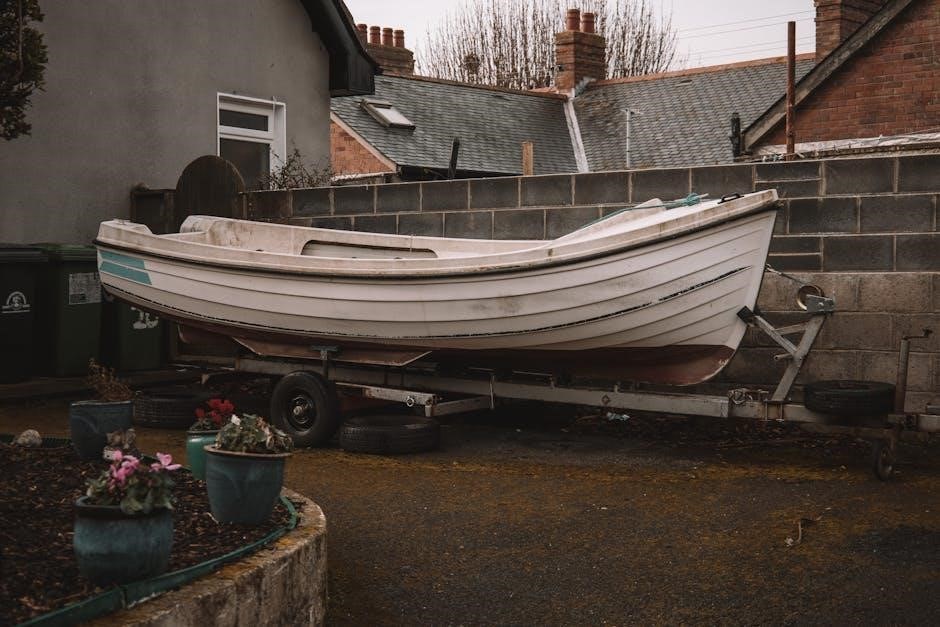
Environmental Considerations
Adopt eco-friendly boating practices, dispose of waste responsibly, and minimize chemical use to protect marine ecosystems. Regular maintenance prevents leaks and reduces environmental impact.
Eco-Friendly Boating Practices
Adopting eco-friendly boating practices is crucial for preserving marine environments. Reduce fuel consumption by maintaining your boat’s hull and using fuel-efficient engines. Always prevent oil and chemical spills by using drip pans and proper disposal methods. Choose biodegradable cleaners and avoid toxic substances that harm aquatic life. Respect wildlife habitats by avoiding disturbance and keeping a safe distance. Properly dispose of waste and recyclables, and use biodegradable products. Conserve water and support local environmental initiatives to protect ecosystems. Promote sustainable fishing practices and responsible anchoring to preserve sea beds.
Disposal of Waste and Chemicals
Proper disposal of waste and chemicals is vital for environmental protection. Use designated marina facilities for hazardous materials like oil, batteries, and cleaning agents. Never discharge waste into waterways, as it harms aquatic ecosystems. Recycle whenever possible and segregate waste to ensure safe handling. Always follow local regulations for chemical disposal to minimize environmental impact. Using eco-friendly products reduces toxic waste, promoting sustainable boating practices and preserving marine life for future generations.
Advanced Features and Technology
Trailer boats now incorporate cutting-edge technology, including advanced navigation systems and smart safety features, to improve performance and user experience on the water, ensuring safety and efficiency.
Modern Navigation Systems
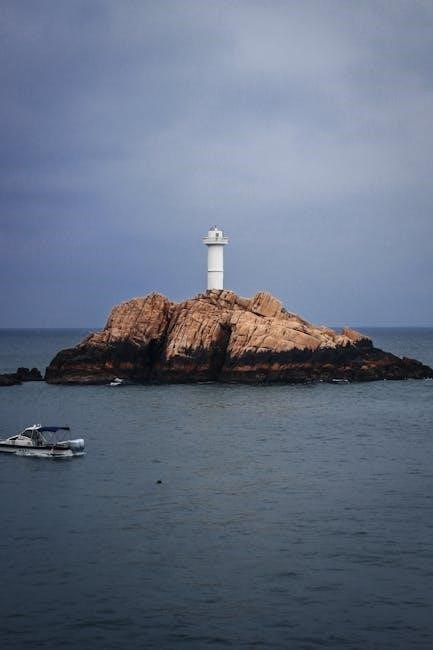
Modern navigation systems in trailer boats include advanced GPS, chart plotters, and radar technology. These tools provide precise location tracking, depth sounding, and obstacle detection.
They often integrate with electronic charts and real-time weather updates, enhancing safety and efficiency.
Features like AIS (Automatic Identification System) improve visibility of nearby vessels, reducing collision risks.
These systems are user-friendly, with touchscreens and customizable displays, ensuring seamless operation for boaters of all skill levels.
Electronic Accessories and Gadgets
Electronic accessories and gadgets enhance trailer boat functionality and safety. Popular additions include fish finders, depth sounders, and GPS units for precise navigation.
Marine stereos with Bluetooth connectivity provide entertainment, while VHF radios ensure reliable communication.
LED lighting systems improve visibility and safety, while battery management systems optimize power distribution.
Multifunction displays consolidate data like speed, depth, and weather, offering a streamlined experience. These gadgets modernize boating, making it more enjoyable and efficient.
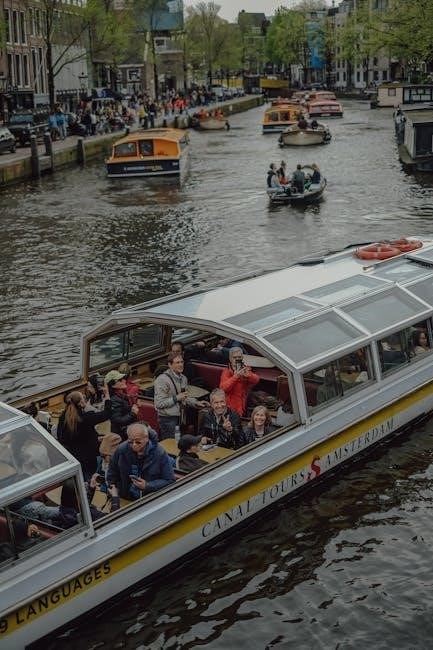
Cost and Budgeting
Trailer boat ownership involves initial purchase costs for the boat, trailer, and motor, plus ongoing expenses like maintenance, insurance, fuel, and storage. Budget wisely to manage these costs effectively.
Initial Purchase Costs
Initial purchase costs for trailer boats vary widely based on size, type, and brand. Smaller boats may start around $10,000, while larger, deluxe models can exceed $50,000. The trailer and motor add to the expense, with motors alone ranging from $2,000 to $20,000. Additional costs include taxes, registration, and insurance. Budgeting should account for these expenses to ensure affordability and avoid financial strain. Researching different models and their features can help you make an informed decision that fits your budget and boating needs effectively.
Ongoing Expenses and Savings Tips
Ongoing expenses for trailer boats include maintenance, insurance, fuel, and storage. Regular servicing, such as engine tune-ups and hull cleaning, can cost $500–$1,000 annually. Insurance premiums vary by location and boat value, averaging $300–$600 per year. Fuel costs depend on usage but can add up over time. To save, consider seasonal maintenance plans, shopping for insurance quotes, and DIY tasks like cleaning. Additionally, storing the boat in a dry location and using fuel-efficient driving techniques can reduce long-term costs and extend the boat’s lifespan.